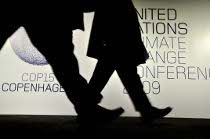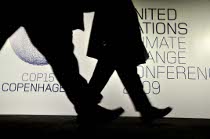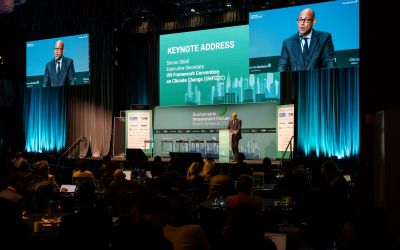Contention at Bonn
Climate talks at the UN Framework Convention on Climate Change (UNFCCC) in Bonn ended on 11th June on a distinct low point

 Climate talks at the UN Framework Convention on Climate Change (UNFCCC) in Bonn ended on 11th June on a distinct low point. There has been criticism that the question and discussion format used by the talks' chair did address the critical issues effectively. There was slow progress and negotiators failed to come to a decision over important climate concerns.
Climate talks at the UN Framework Convention on Climate Change (UNFCCC) in Bonn ended on 11th June on a distinct low point. There has been criticism that the question and discussion format used by the talks' chair did address the critical issues effectively. There was slow progress and negotiators failed to come to a decision over important climate concerns.
A replacement for the Kyoto Protocol is no nearer and discussions became more tense in relation to it. The Protocol expires in 2012 and a second commitment is proving difficult to agree upon. Negotiations over the issue have been active for the last two years and at the talks Japan and Russia voiced a lack of commitment and questioned any mention in the text for developing countries to "increase the level of ambition" towards climate change.
The British charity Oxfam asserted that:
"Whilst the mood amongst negotiators has mostly been more constructive than in April and last year, the underlying disagreements that derailed the talks in Copenhagen are still to be resolved."
Despite this there are still many contentious points that are yet to be resolved. These include climate finance and the question of emissions targets. For example, developing countries are still waiting on money promised to them to help aid their battle towards reducing emissions, Colin Beck, vice chair of the Alliance for Small Island States (AOSIS) declared:
"We still do not know where the money is. We need to see it. Our people need to touch it. It remains in the air."
Both the draft text and the reissued text written by Margaret Mukahanana-Sangarwe of Zimbabwe who chairs the U.N. talks on global action have been rejected by parties claiming that it didn't meet the needs of developing countries and was therefore unbalanced. It is important that a decision is reached in the not to distant future and that these differences are overcome as a UN report has established that if pledges aren't improved emissions will increase by 2020.
The incoming Executive Secretary of the UNFCCC, Christiana Figueres, said last weekend, "conclusive, all-answering agreement…I don't think that's on the cards." It is clear that progress at Bonn has not been groundbreaking and that hopes for a platform for discussion at Cancun has not been established. It looks as though Cancun will not be a decisive year in the climate debate and we may have to wait until next year's Conference of Parties for a positive result.
Author: Rachael Bristow | Climate Action
Image: CIAT International Centre for Tropical Agricultu | Flickr






